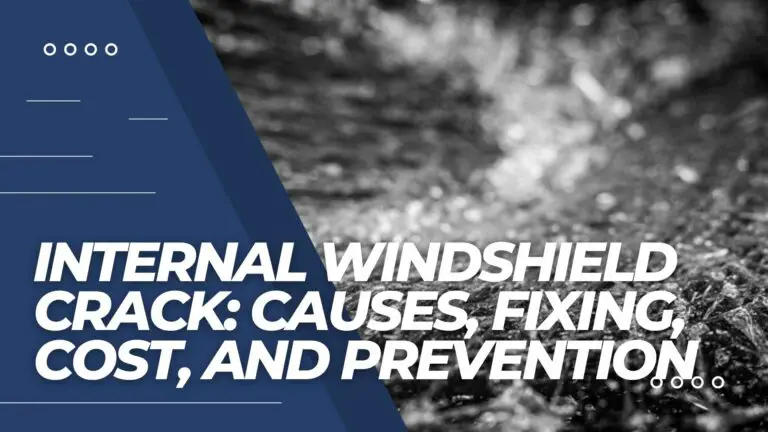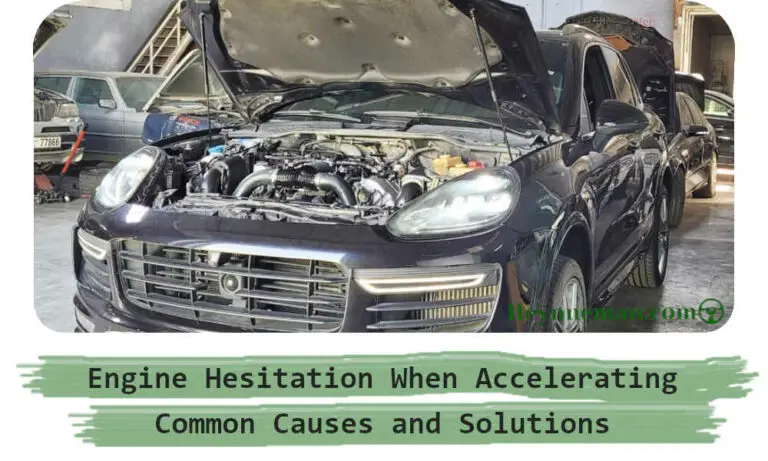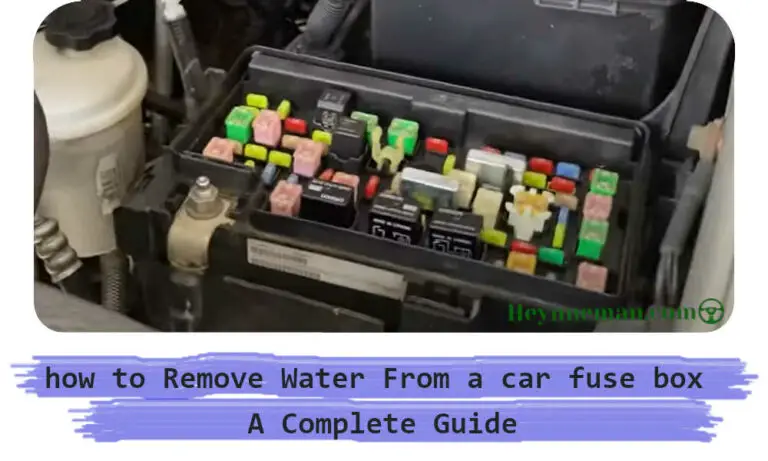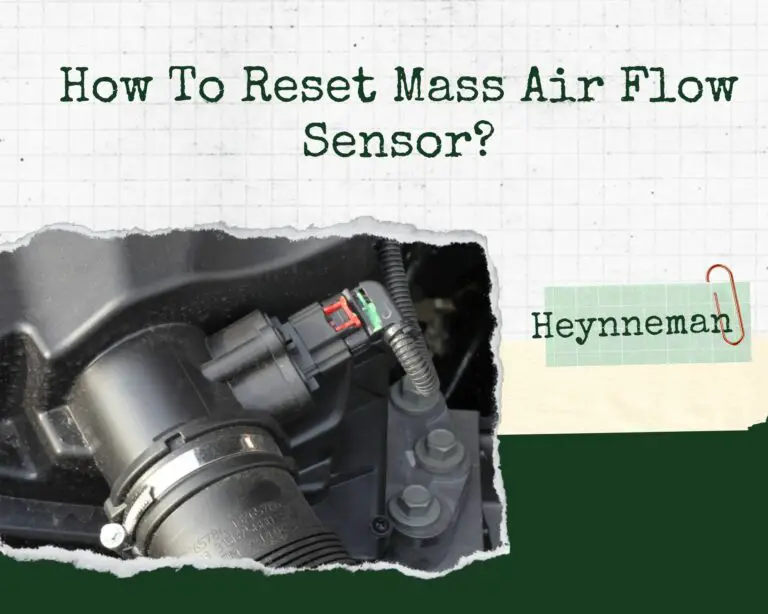Causes and Symptoms of Seized Brakes After Vehicle Sits Overnight
Brake seizure, a common problem experienced after a vehicle sits idle overnight, can be attributed to various factors. Prolonged inactivity leads to the brakes sticking, potentially causing discomfort and safety concerns during subsequent drives. Driving with seized brakes poses a serious issue that necessitates prompt and appropriate action. Neglecting to address this problem can result in compromised safety on the road. To mitigate the risk of brake seizure, it is imperative to use the vehicle regularly. This article explores the specific procedures and remedies for resolving the issue of seized brakes.
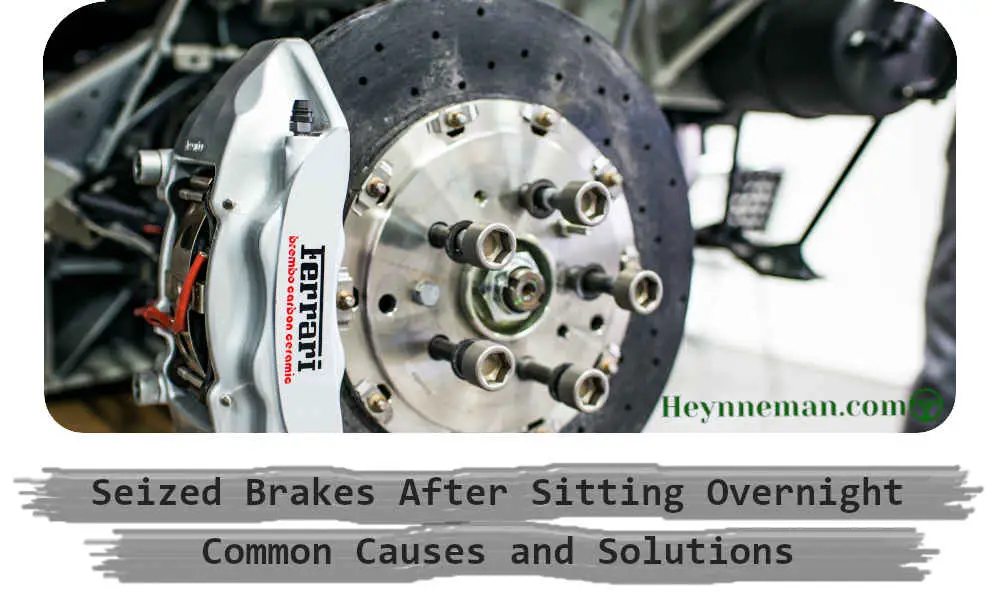
Symptoms of Seized Brakes
Recognizing the symptoms of brake seizure allows for proactive measures to be taken. Your vehicle and its primary components will manifest these symptoms while in operation. An illustrative example is a noticeable resistance or difficulty when attempting to release the handbrake. Additionally, a grinding or scraping noise during initial movement may suggest brake components sticking together. It is essential to comprehend the symptoms outlined below to promptly identify any issues and take appropriate actions.
- Difficulty in moving the vehicle in the morning
It will be difficult to move your car in the morning due to the sticking brake. So you can understand that the brakes are seized when you can’t move the vehicle in either direction.
- Squealing or grinding noise when applying brakes
It is a common symptom that a grinding noise occurs when you apply the brakes. When you hear such grinding noise, understand that the brakes are seized.
- Reduced braking performance
If the brakes are seized, the brakes cannot perform adequately. And the proper performance might be reduced due to the seized brakes.
Be vigilant in identifying the symptoms mentioned above to undertake the correct repairs and actions. Do not neglect these signs if they manifest in your vehicle; instead, act promptly to ensure safe driving.
Possible Causes of Seized Brakes
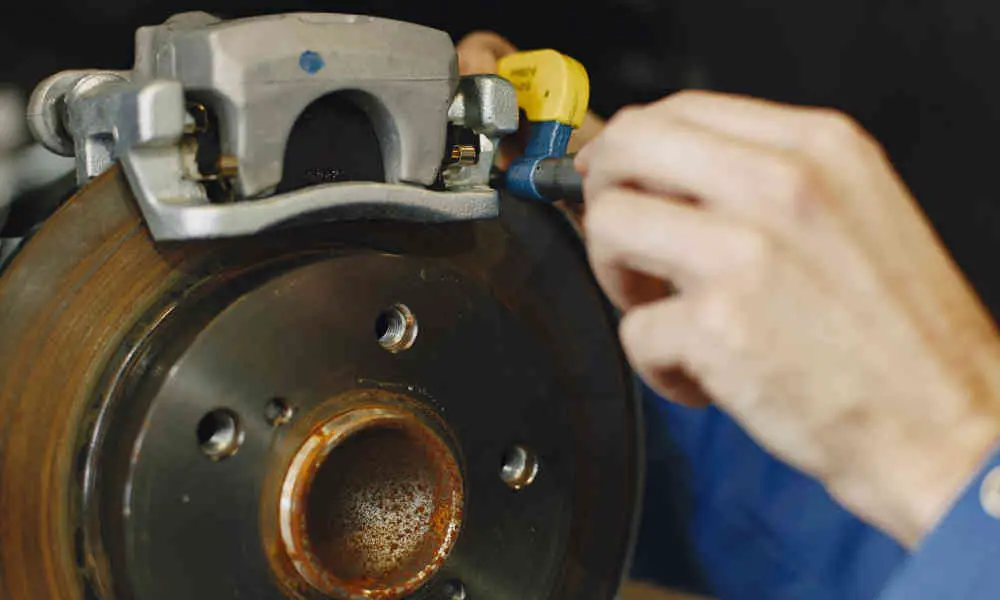
There are several reasons for the seized brakes. If you want to take the proper actions, you have to be aware of the possible causes, and you need to clear the basis of the issue that can help you avoid it in the future. Understand the exact causes from below.
- Corrosion on brake component
The primary cause of seized brakes after sitting overnight is corrosion. Corrosion occurs when moisture reacts with the brake components, leading to surface rust on metal parts such as brake rotors, brake pads, and calipers. The presence of wet air can further exacerbate the corrosion, causing the brake disc, pads, and calipers to become stuck. Particularly in humid conditions, the absorption of rust into the metal components swiftly seizes the brakes.
To mitigate the effects of corrosion and prevent brake seizure, it is essential to adopt proper remedies. This includes regular cleaning and, when necessary, replacing corroded components. Additionally, applying anti-corrosion treatments can be an effective preventive measure to safeguard the brake system and maintain optimal functionality.
- Sticking Brake Calipers
Each caliper is equipped with brake pads that exert pressure through the pistons. Consequently, these pistons may become stuck due to the damaged seal. This seal, which surrounds the piston, serves as the mechanism for transferring forces to the piston. When the seal is damaged, and the handbrake or foot brake pedal is released, the pistons may fail to retract into the caliper, rendering the brake consistently inactive.
Identifying a seized caliper can be done through various signs, including a grinding noise, unusual smoke, vibration in the brake pedals, and abnormal heat on the wheels. These indicators signify compromised driving conditions due to seized brakes. In such cases, it is imperative to implement adequate remedies, such as replacing the seized caliper, to ensure the proper functioning of the braking system.
- Brake Fluid Issues
Brake fluid contamination poses a significant risk of causing seized brakes. Over time, brake fluid accumulates moisture and contaminants, compromising its effectiveness. Old or contaminated brake fluid can lead to diminished brake performance and, in extreme cases, brake components seizing. It can be caused to fail the entire brake mechanism.
Regularly checking the brake fluid level and condition is crucial for early detection of potential issues. If the fluid appears discolored or contaminated, prompt action is necessary. Flushing and replacing the brake fluid at recommended intervals help maintain optimal braking function, preventing the detrimental effects of contamination and ensuring the reliability of the braking system.
- Parking Brake Problems
Parking brake issues can lead to the troublesome scenario of seized brakes. One common problem arises from a misadjusted parking brake cable, causing one side to be excessively tight while the other remains slack. This imbalance can result in the brakes staying engaged even after releasing the parking brake. Fortunately, a minor adjustment or cable replacement can rectify this issue.
Additionally, modern parking brakes are electronic and reliant on a motor for engagement and disengagement of brakes. If the electronic parking motor faces malfunctions, the brake may not be released. A simple reset using a diagnostic tool or replacing the caliper becomes essential in such situations. Addressing these parking brake challenges promptly is crucial in preventing brake seizures and ensuring the proper functioning and safety of the braking system.
Why Is My Brake System Warning Light ON?
heynneman
Learn Common Causes and Solutions
Diagnostic Steps
If you realize that the brakes are seized after sitting overnight, you have to take the essential steps to overcome the circumstances. Understand the diagnostic steps below to take the correct actions against the issue.
- Gathering necessary tools and equipment
- Jacking up the vehicle and removing the wheels
- Inspecting and testing brake components systematically
- Documenting findings and noting any issues discovered
Tips to Avoid Brakes Seizing
The brakes seized after sitting overnight are almost a preventable issue if you follow adequate measures. Precisely, your consciousness on the maintenance of brake components will be affecting the good condition of our car.
Before you park your car, you have to ensure that the brakes are in good condition. It will help the car brake from seizing after sitting overnight. You have to clean the shoes and pads periodically and check the caliper often. Follow the tips below to prevent the brakes from seizing after sitting overnight.
- Regular maintenance and inspections
- Parking in dry and covered areas
- Using the parking brake correctly
Conclusion
Generally, the problem of brakes being seized after sitting overnight has arisen due to the lack of better maintenance of brake components. So, most importantly, you have to keep the calipers and brake pads from corrosion and other rust damages, which can lead to seizure brakes. Firstly, you need to realize the signs of seized brakes to seek the appropriate actions or remedies. The car will reflect the symptoms by making a grinding noise or other itself.
Anyway, take the perfect remedies as soon as possible. Besides these, check and clean the major components of brakes frequently and use your car every day. If you can maintain the car perfectly, almost all the issues of seized brakes can be avoided easily by assuring the safety of driving.

